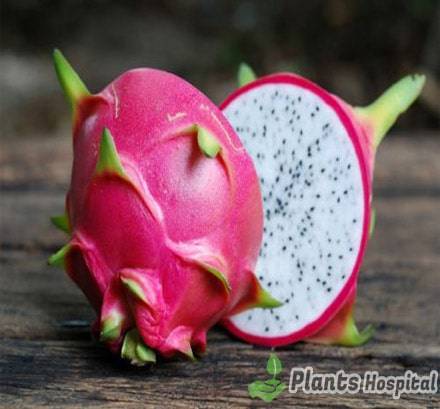Table of Contents
What is Liverwort? Benefits Of Liverwort
Liverwort is a medium-sized flowering plant standing 0.5 to 2 meters high. It is full, with a vibrant greenery of pinnate leaves and small yellow flowers growing from a single spike.
The leaves and stems are covered with fine hairs with barb-like ends. Leaves have a resinous texture on the underside.
The whole plant is slightly aromatic even the roots, which have an apricot scent. The numerous yellow flowers are closely clustered on slender spikes, which tend to stretch when seed vessels mature.
This plant is bushy in areas with alkaline soils and grows in roadsides. The ideal environment for raising liverwort is in sunny and semi-sunny environments.
This plant seeds are germinated in cold weather because it is too thick. Liverwort – Agrimony is most used in modern herbal practice as a mild astringent and a tonic.
Liverwort is approved by the German Commission internal use for mild, nonspecific, acute diarrhea and inflammation of oral and pharyngeal mucosa (sore throat).
The dried, above-ground parts of Agrimonia eupatoria L. And or A. Procera can be used as a skin wash to treat skin inflammation and irritations.
Liverwort is dried at a temperature up to 35 ° C and then stored in sealed containers that offer good protection from light and moisture.
Liverwort has a slightly aromatic fragrance and a spice-like, bitter taste and can be used in the form of extracts (herbal tea), tablets, capsules, liquid extracts, and tinctures. Now, let’s take a closer look at the benefits of liverwort.

11+ Best Health Benefits of Liverwort (Agrimony Eupatoria)
When we are very old and very young, bladder control is a major issue. The astringent quality of Liverwort makes bladder control easier, eliminating those embarrassing bed-wetting moments and accidents.
Liverwort ( Agrimony ) is effective against diarrhea, especially in small children, and because of its low toxicity, the herb is particularly suitable for children’s illnesses.
Similarly, as reducing inflammation in the gut, Liverwort is also widely used to improve respiratory conditions that may involve inflammation, such as sore throats, chronic coughing, bronchitis, and other sinus issues.
For colds, coughs, and flu, it can be an effective way to speed up the recovery and healing process.
The tannins it contains tone the mucous membranes making it is useful for alleviating the symptoms of coughs and sore throats. Liverwort (Agrimony) has had a great reputation for curing jaundice and other liver complaints.
Liverwort (Agrimony) is perhaps best known as a wound herb used on medieval battlefields to staunch bleeding. This same property helps to slow heavy menstrual bleeding as well.
From ancient times liverwort (Agrimony) has been used for healing wounds and snake bites and for halting bleeding.
Due to its high silica content, it’s still valued today as an astringent for cuts and abrasions.
When you are suffering from blemishes, pimples, rashes, acne, psoriasis, eczema, or any other skin condition, you can topically apply Liverwort to the affected area and it can help to alleviate the issue.
Liverwort (Agrimony) can also be taken orally for the same effect. It works on irritation as well as blood eruptions that happen beneath the skin, like blotching and easy bruising due to its astringent properties.
Silicic acid is also found in liverwort, and this unique compound is known to significantly boost the strength, appearance, and overall health of the patients with a history of excessive bleeding or bleeding disorders should use it at milder doses nails and hair, preventing easy breakage or a dull appearance.
- 11 Amazing Promising Benefits of Sumac Plant
- 8 Best Natural Ways to Get Rid of Vomiting: Home Remedies + Quick Tips

Liverwort (Agrimony Eupatoria) Side Effects
Like all pharmaceutical and natural treatments, liverwort should be used with caution and understanding. Due to its high tannin content, liverwort (Agrimony) should be used in moderate doses on the skin and internally.
The use of the plant during pregnancy or breastfeeding should be avoided because associated risks are yet unknown.
In moderate amounts, liverwort is not known as a toxic or allergenic substance for people of all ages.
However, due to its astringent properties that help treat so many conditions, this can also exacerbate constipation, so use with caution.
Note that while Liverwort is an effective treatment for many forms of diarrhea, it can aggravate constipation. Always consult a doctor before adding new herbal remedies to your daily or weekly health regimen.
- 30 Amazing Benefits Of Asparagus: How to Make And Uses & More
- 10 Wonderful Health Benefits Of Sage: Nutritional Facts, Uses & More
Preparation Methods & Dosage
Traditionally, this tea is made of the dried leaves or powder, using one teaspoon to one cup of boiling water and simmering for five minutes before drinking.
Germany’s Commission has approved liverwort tea for controlling diarrhea and the cooled tea as a throat gargle to lessen inflammation and sore throat pain. Standard brew using 1 teaspoon of dried herb to each cup hot water.
The longer you let it steep, the more tannins are extracted. Make a stronger decoction for external use in baths and skin washes drink 2 to 3 cups per day. Used in ointment form for skin rashes, and as a gargle for sore throat.
Prepare the herbal Liverwort infusion by using a cup of boiling water as a medium to infuse one to two teaspoonfuls of the dried liverwort herb, allow the herb to infuse for ten to fifteen minutes at a time.
The infusion can then be cooled and strained-this infusion can be used thrice every day as an herbal remedy. The herbal tincture can be given to use in dosages of one to three ml of tincture thrice every day during the treatment of the individual.
Read More: Sore Throat: Natural Home Remedies – What is Causes Sore Throat?








